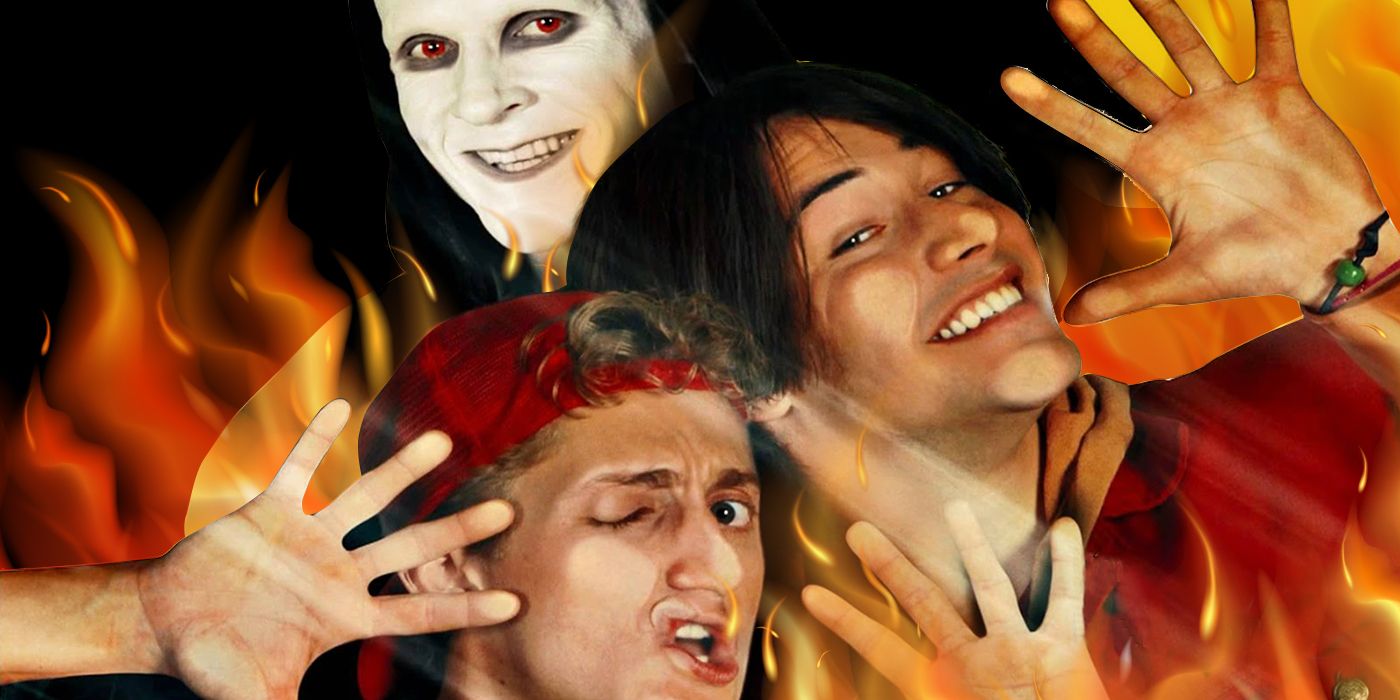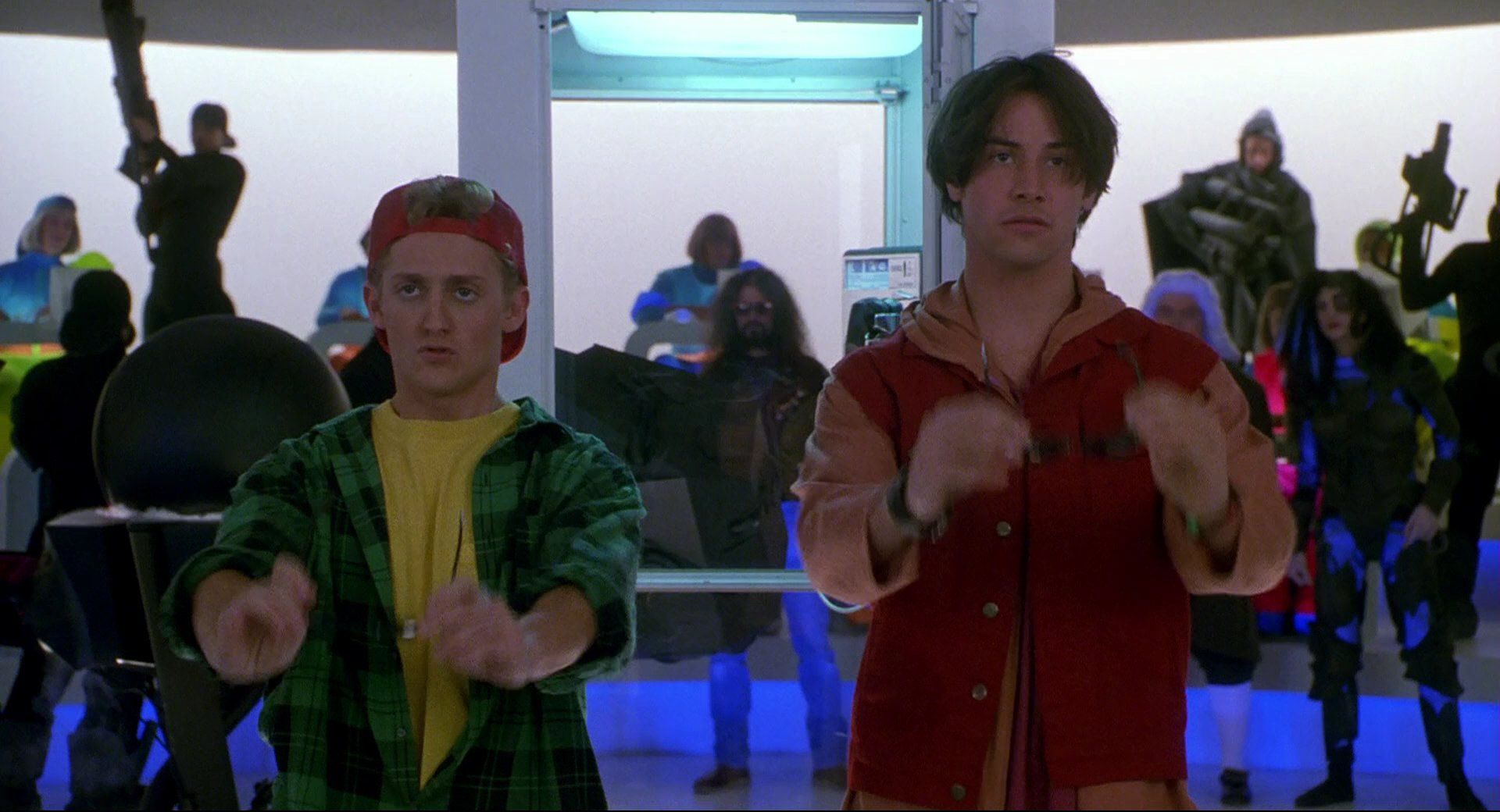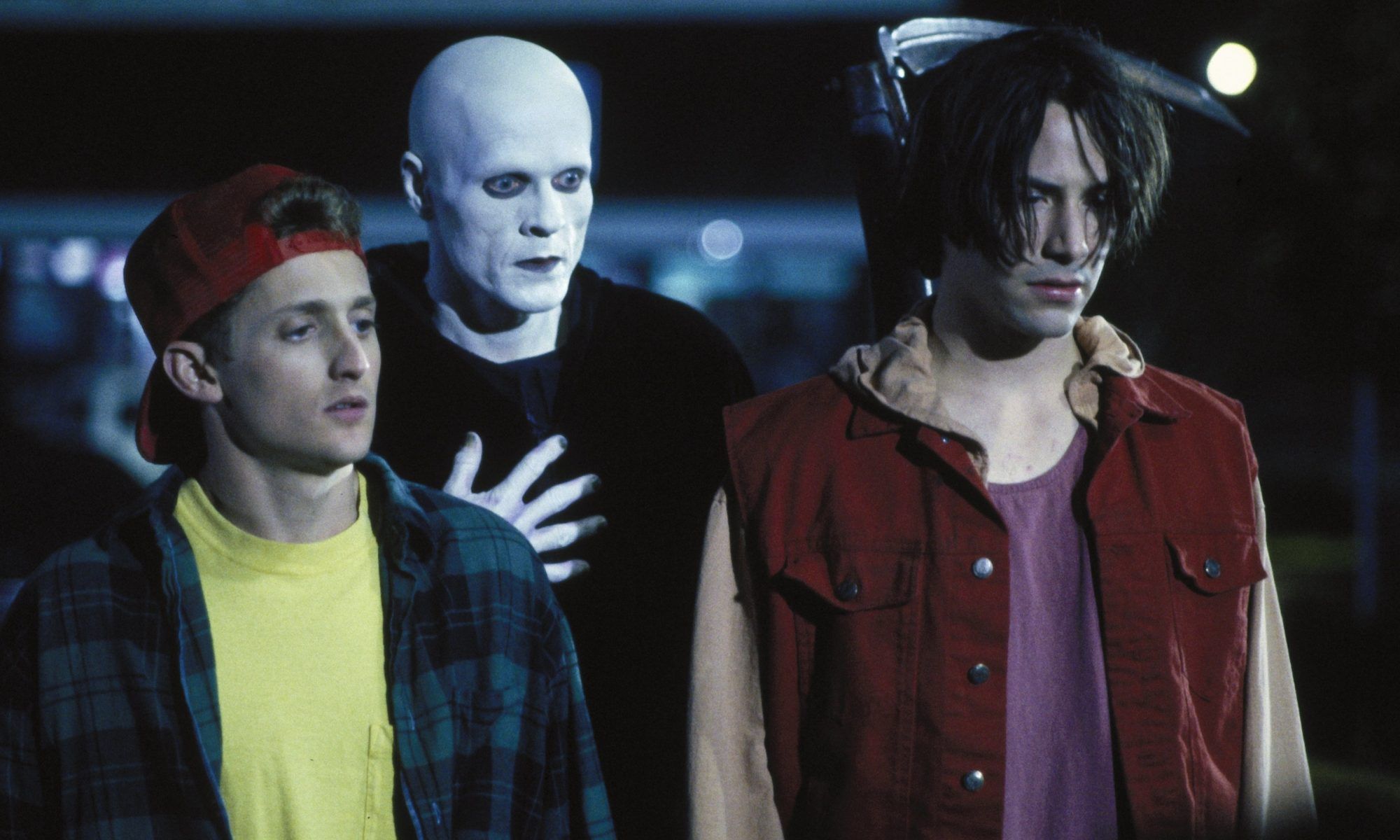Comedy sequels often fail spectacularly and rarely become classics worthy of their originals. Look no further than films like Major League II, Caddyshack II, Weekend at Bernie’s II, or The Hangover: Part II that all landed with momentous thuds. Many comedy sequels fail because they attempt to extend a one-joke premise, padding additional mythology on a story that worked due to its simplicity. The joy of seeing comedic banter develop can also deplete; if the unusual pairing of Will Smith and Tommy Lee Jones came as a surprise in the first Men in Black, it was tiresome by the time of Men in Black II.
However, these are common flaws that the Bill & Ted franchise managed to avoid. 1989’s Bill & Ted’s Excellent Adventure was a surprising hit, and it may have been easy to essentially replicate the first film’s premise and put together a hastily constructed follow up. There was an easy, safe route the sequel could’ve gone, with Bill S. Preston (Alex Winter) and Theodore Logan (Keanu Reeves) about to fail a college exam and forced to rely once again on their time traveling telephone booth to transport them across history. Thankfully, screenwriters Ed Soloman and Chris Matheson didn’t go that direction and constructed a darker, weirder sequel that took the Wyld Stallyns in a new direction without forgetting why the first film’s humor worked.
30 years after its debut, Bill & Ted’s Bogus Journey stands as one of the all-time great comedy sequels because it didn’t simply repeat the same jokes. The film only briefly brings back punchlines from the first installment in order to refamiliarize the viewer with the characters, and show why they’re such loveable losers. Bill and Ted’s musical abilities haven’t grown any stronger in the time that passes between the two movies, and they’re frequently outperformed by their brides from the 15th Century.
Any perceptions that the sequel would be covering too much familiar territory is shattered early on. Within the first act, Bill and Ted are murdered by cyborg clones of themselves and sent to hell, where they’re forced to bargain with Death himself, played brilliantly by William Sadler. In the land of the living, the cyborg replicants sent by an evil former gym teacher have taken over their bodies and wreak havoc on the Wyld Stallyns’ plans to enter the San Dimas Battle of the Bands, a competition that would solidify the utopian futuristic society that is crafted within their image.
Although the story is different, Bogus Journey understands exactly what elements made the original film fun. The optimistic energy is still there between Winter and Reeves, and the idea that these two seemingly dim-witted characters are the landmarks of a brighter future is maintained. Thankfully, the film doesn’t pit the two against each other with an unnecessary conflict, and the actual off-screen friendship that developed between Winter and Reeves makes their chemistry even stronger.
There’s also a ticking time clock they face, as the threat of losing the Battle of the Bands fulfills the same threat that failing the history exam did in Excellent Adventure. The stakes are raised even higher due to the robotic clones, whose entry into the contest adds tension to Bill and Ted’s escape from the underworld. The threat is also a personal one, as the clones torment Bill and Ted’s respective fiancees Elizabeth (Annette Azcuy) and Joanna (Sarah Trigger), right after they’ve proposed. If the two medieval “babes” were little more than trophies in the first film, they actually develop as characters in the sequel. It’s the rare comedy sequel that takes time to flesh out female characters that were ignored previously, and the two princesses aid in crafting the film’s show-stopping final number.
The nightmare sequences descend into some genuinely horrific imagery (it was originally titled Bill & Ted Go to Hell) as Bill and Ted face off against traumatic memories. For Bill, it’s a kiss from his sinister-looking grandmother, and for Ted it’s a vicious Easter Bunny. The pair’s ingenuity is highlighted as they square off against the Grim Reaper in a series of games like Battleship, Clue, Electric Football and Twister. The clever parody of the chess match against Death in Ingmar Bergman’s The Seventh Seal is another sign that these films are a lot smarter than they’re given credit for.
While comedy sequels like Caddyshack II failed to introduce new characters that merge with the existing ones, Reaper is a fun third wheel that tags along in Bill and Ted’s misadventures. Sadler delivers lines like a sad sack who has become depressed by his inability to frighten the duo, and the empathy Bill and Ted give him reminds of how open-minded they are, and thus why they’re the basis of a utopia. The great makeup work and Sadler’s performance add physical comedy that wasn’t there previously, particularly when the trio attempts to navigate their way through Heaven.
The film also leans into weirder sci-fi elements, particularly as the gang recruits the genius alien duo Station, allowing Bogus Journey to distinguish itself from the lampooning of historical figures in the first film. It also sets up a different type of finale; Excellent Adventure ends with Bill and Ted expressing themselves and solidifying their ideal future, while Bogus Journey comes down to an epic musical battle between good and evil.
The ending montage set to KISS’s “God Gave Rock ‘N’ Roll To You” is purely infectious and ties up loose story ends. Bill and Ted show development as characters and musicians, growing into their responsibilities as leaders and finally learning to play their instruments. It’s ironic that most comedy sequels forget that characters actually need to develop, and Bogus Journey pits its titular leads against a challenge that they overcome and learn from. The intergalactic rock concert that follows (and Reaper’s subsequent lip-syncing scandal) comes as the fun reward.
Last year’s Bill & Ted Face The Music was heralded as a novelty, as it’s rare for a trilogy to end with three equally strong installments, and it’s even less often that this happens with a comedy franchise. The Bill & Ted trilogy contain three installments bound by their optimism and wit, yet distinguishable for their different approaches to the material. Bill & Ted’s Bogus Journey proved this franchise was sustainable, and three decades later it stands as one of the greatest comedy sequels of all-time.



